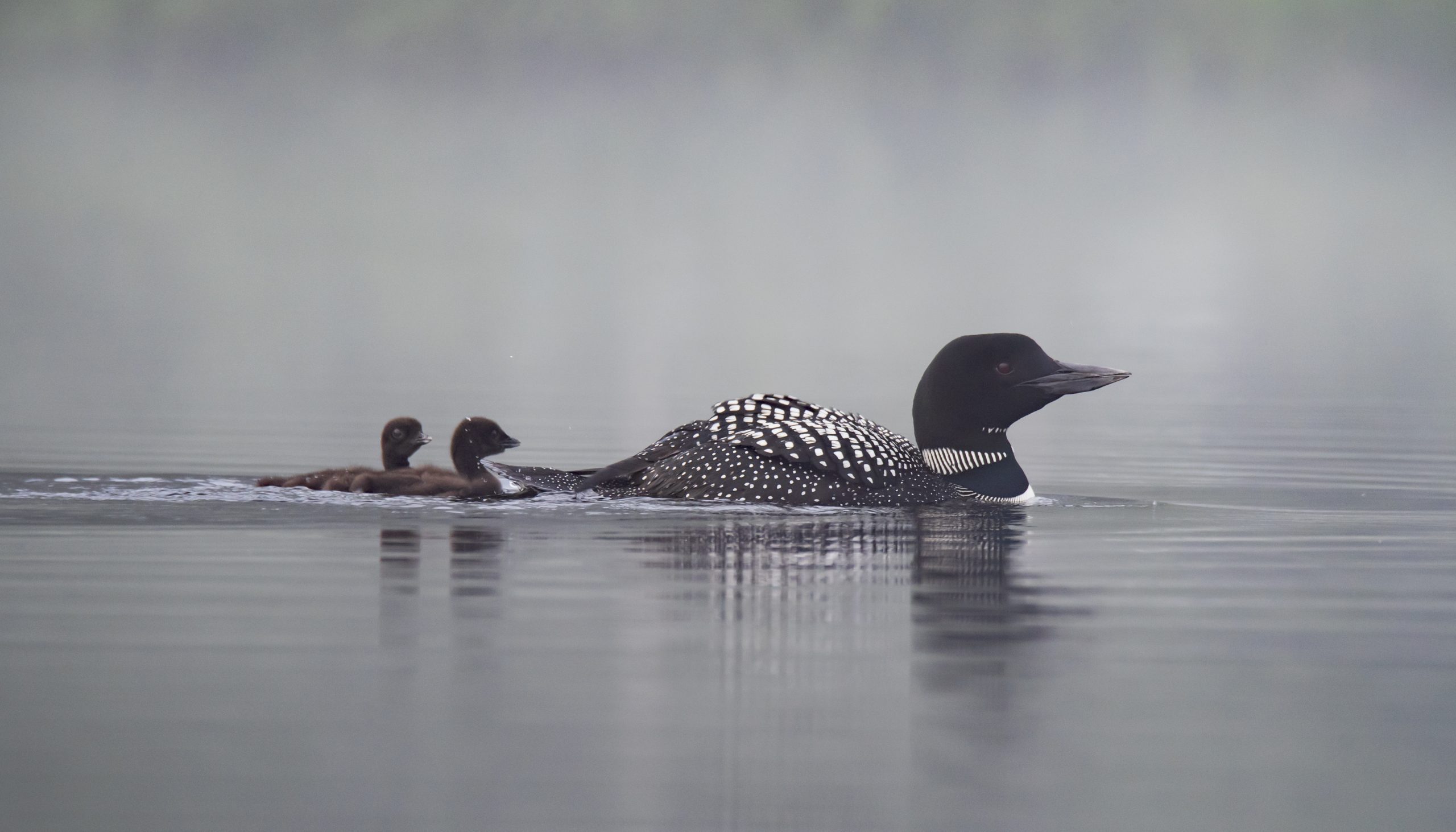LEA Collaborates on a Loon Project
In 2003, an oil spill in Buzzards Bay, MA killed a large number of Common Loons. To help offset the Common Loon losses which resulted from the Buzzards Bay oil spill, a 5-year-long project was launched with LEA, Maine Lakes, and Maine Audubon to help establish a larger organized loon conservation effort. Maine Audubon has been collecting loon data for the past three decades and has been working with partners and citizens to promote and support healthy lakes, clean water, and successful loon habitat through the loon counts, Signs of the Seasons, and educational programs. More information about Maine Audubon’s Maine Loon Project
can be found here.
This summer, we began laying the foundation and infrastructure required to accomplish this ambitious project by establishing necessary protocols and by building internal capacity to manage data collected by volunteers. In the coming year, we will begin active data collection. If you have any interest in helping with this project, please contact LEA’s staff researcher Maggie Welch at
maggie@mainelakes.org.
This winter we’ll start data collection and environmental observation by noting ice-in dates. Look for an update on an ice- in/ ice-out survey online soon.
In the meantime, here are things you can do (and encourage others to do) to be loon friendly:
- Obey the no-wake law within 200 feet of shore.
- Use steel, tin, and bismuth tackle for fishing, and avoid lead. (Stop by LEA if you need a sample!)
- Dispose of fishing line so it does not get tangled up in a loon’s feet or bill.
- If you live on a lake, use phosphorus-free fertilizer and plant shrubs as a buffer along the shoreline to reduce run-off.
- If you see a loon on a nest, keep your distance and watch with binoculars.
- Keep garbage out of reach of loon egg predators, like skunks and raccoons, which will attract them to the shorefront.

Photo by Mary Jewett
